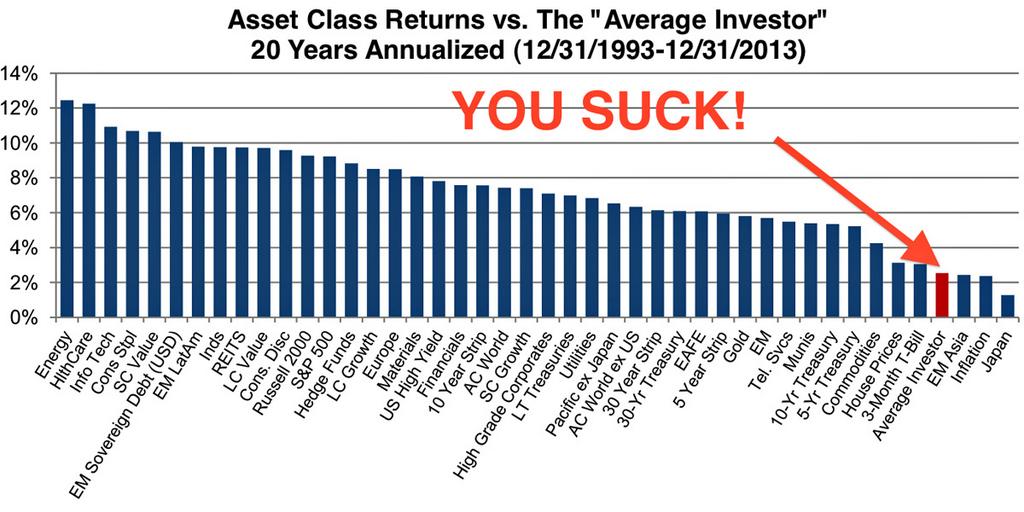My recent piece, “The New Wolves Of Wall Street,†struck a nerve. I think it taps into both advisers’ insecurities and investors’ worries about not getting what they pay for. Good. That’s what I was going for.
Before I follow up on that piece, though, let me make a couple of things clear. First, there are some truly wonderful advisers out there. My experience, however, tells me they are more the exception than the rule. As WSJ’s Jason Zweig tweeted this morning many, “treat clients like Sioux treated the buffalo.â€
Second, I’m not criticizing either the RIA model or index funds right now (though these aren’t without their own problems). All in all, they are a net positive for individual investors because they reduce conflicts of interest and bring down costs. I’m focused on the problems that arise when you put the two together.
Â
Ultimately, this discussion is focused on the massive underperformance individual investors experience in their own portfolios on a consistent basis:

Most pundits like to blame this on the fact that individual investors are just “dumb money.†Indeed, there is a “behavior gap†that causes investors to become euphoric with the crowd and buy at the wrong time and then panic in the midst of a bear market and sell at precisely the wrong time. This is human nature.
What the wolf doesn’t want you to know, however, is that he’s just as much to blame for your underperformance as your caveman brain is (see “Where’s Wall Street’s Blame In The Buy High Sell Low Game?“). In fact, even if he does a perfect job managing your natural instincts along with his own, he’s going to cost you big time – like half of all of your profits over the long run, big time.
So the problem as I see it two-fold. Both the “behavior gap†and obscene fees are significant contributors to the problem of massive underperformance. Addressing the first part is a good start. But ignoring the second part or – even worse – pretending, as an adviser, to pursue a low-cost approach while charging predatory fees is counterproductive, at best.

